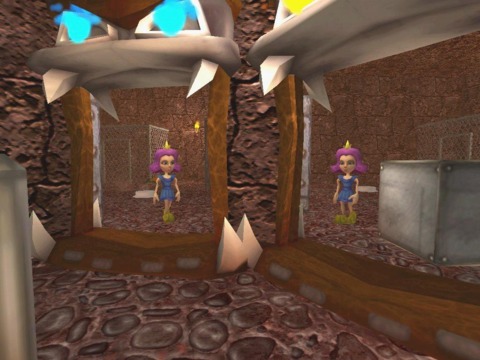AAA developers offer job advice
GDC 2011: Cliff Bleszinski, Clint Hocking, Brian Reynolds, Robin Hunicke tell aspiring top-tier game makers the best way to get in is to make stuff.
Who was there: One of the last panels held during the 2011 Game Developers Conference featured a handful of the biggest names in the industry, representing some of the biggest studios in the industry. Epic Games' Cliff Bleszinski was joined by LucasArts' Clint Hocking, Zynga's Brian Reynolds, thatgamecompany's Robin Hunicke, and Microsoft Game Studios' Chris Charla to talk "Breaking Into AAA Game Development."

What they talked about: Charla, who served as moderator for the panel, started the session off by saying that rather than serving as the session's inquisitor, it would be the audience's questions that the team onstage would field.
The first question came from an art student, who wanted to know what else he should be doing to prepare for getting a job in the industry while finishing up his degree. According to Bleszinski, the most important thing he should be doing is honing his artistic skill. Bleszinski also said that participating in online artist communities is also beneficial because Epic regularly trolls these forums looking for potential candidates.
Hunicke added to this response, saying that while it's important for people to always put forward their best work, it's also good to show that they have a distinct voice. That is to say, while applicants should show a studio that they can mimic that studio's style, it also helps to throw in their own flare.
The next question concerned how a developer can transition from the indie scene to a AAA developer. Hocking said that first and foremost, people should be doing what they feel is right for them--AAA development shouldn't always be the goal. However, for those that want to make that switch, it's important to realize that specialization is how it's done at the top-tier houses, and indie developers can expect to wear so many hats.
Bleszinski noted that developing in the indie sphere isn't particularly helpful in getting a high-level AAA position. Instead, big companies are looking for people who have paid their dues at the bottom and then worked their way up. Hocking agreed with this, saying that he didn't set out to be a creative director. He started out being the best level designer he could be and then progressed to being the best lead designer he could be before becoming the best creative director he could be.
The next question to the panel was whether it is best to acquire a bunch of skills or specialize on one thing. Bleszinski said that it's best for people to pick one area of specialization initially, and then once established, it's good to begin expanding their skill sets.
Bleszinski also fielded the next question, saying that the best way to get an entry-level level design gig is to simply make something, a point Hunicke echoed. According to Hunicke, the best way to start is to simply use other people's tools and to make mods. Reynolds noted that pure game design or systems design jobs are probably the hardest entry-level jobs to get. Other ways to get into design are quality assurance or programming, if the individual has those skills.
The next two questions dealt with the same topic: What's the best way to wow an interviewer as a physics designer or a programmer? For both questions, the panel had a consensus: make something.
Schooling was the topic of the next question, specifically, how important is a degree? The panel agreed that while most companies list a degree as a requirement, if the applicant is good, then the degree isn't necessary. "If you're awesome, we'll hire you," Hunicke said.
For the last question, the audience member asked whether he could be damaged if he made a full game to completion by himself, but areas of it weren't perfect. The answer to that question, Bleszinski said, can be found in Narbacular Drop, the student project that eventually became Portal. Bleszinski said that Narbacular Drop looked horrible, but Valve was able to see its promise, and that's how it got made.
Quote: "Make s***."--Cliff Bleszinski, repeating the general advice of the panel.
Takeaway: Not to belabor the point, but AAA developers are looking for individuals who are able to take projects--be they student, indie, or otherwise--to completion. When in doubt, just make something.
Got a news tip or want to contact us directly? Email news@gamespot.com
Join the conversation